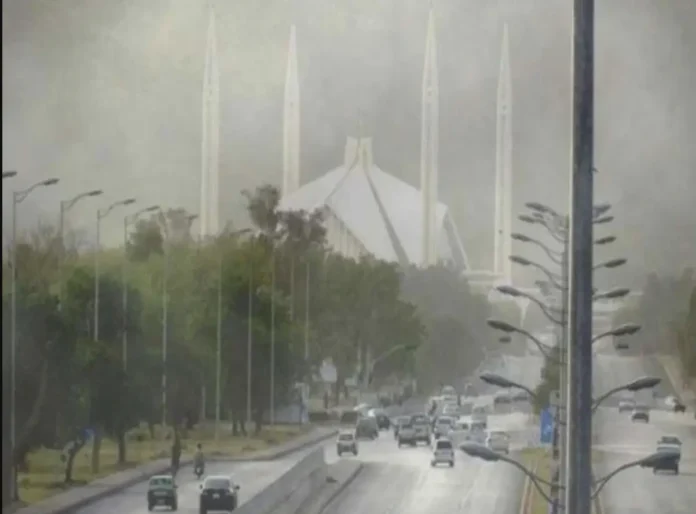The Islamabad administration has imposed Section 144 to curb air pollution, banning smoke-emitting vehicles, factories, brick kilns, and crop burning for two months.
The Islamabad administration has taken a significant step to address the severe smog and air pollution in the city by imposing Section 144. This measure, effective for the next two months, bans the release of toxic gases from vehicles, factories, brick kilns, and the burning of waste and crops. The orders, issued by the Additional District Magistrate, aim to tackle the rising levels of harmful emissions in the area.
The air quality index (AQI) in Islamabad has reached unhealthy levels, with a PM2.5 reading of 169, according to the World Air Quality Index. The Environmental Protection Agency (EPA) has warned that smog will continue to prevail in the twin cities of Islamabad and Rawalpindi from November to February. The EPA has urged the district administration to implement preventive measures to protect citizens from smog.
The district administration has warned of strict legal action against violators of these regulations. The smog crisis has raised health concerns, with warnings indicating emergency conditions for the city’s residents. The Punjab government has allocated a budget of Rs10 billion for smog mitigation and Rs100 billion for environmental initiatives.
The EPA emphasized the serious health, environmental, and economic impacts of smog, noting that it can lead to heart, eye, respiratory, and skin problems. The agency has called for cooperation from the district administration to control air pollution.
In response to the smog crisis, Punjab Information Minister Maryam Aurangzeb emphasized the importance of climate diplomacy, with plans for dialogue with Indian officials regarding climate issues. Chief Minister Maryam Nawaz has prioritized strategies to tackle smog, moving towards a “green lockdown” approach to minimize disruptions.
Conclusion:
The imposition of Section 144 in Islamabad is a crucial step towards combating air pollution and protecting public health. The strict measures and cooperation from the district administration are essential to mitigate the smog crisis and ensure a healthier environment for the residents.
